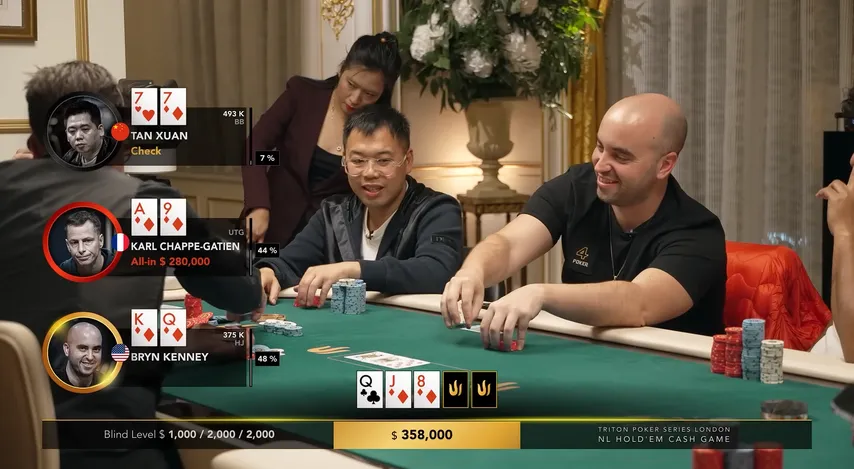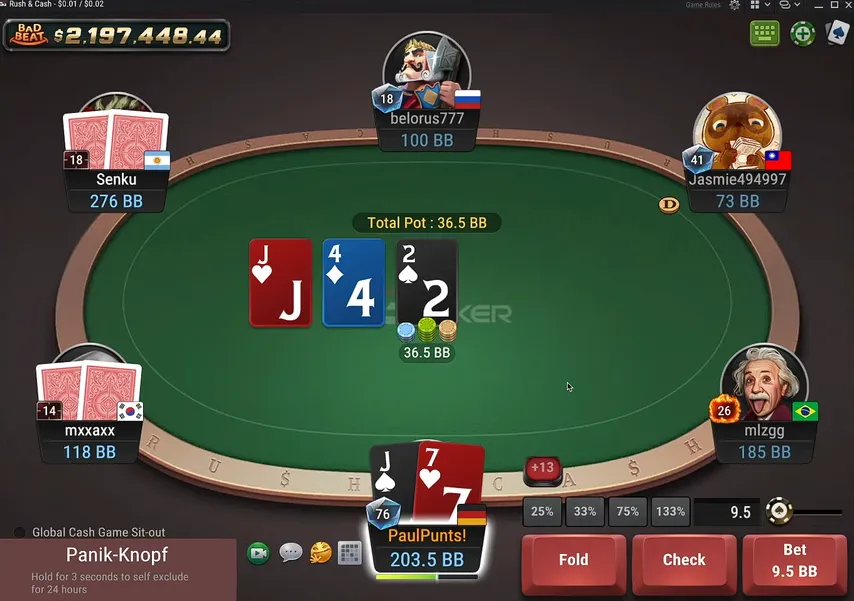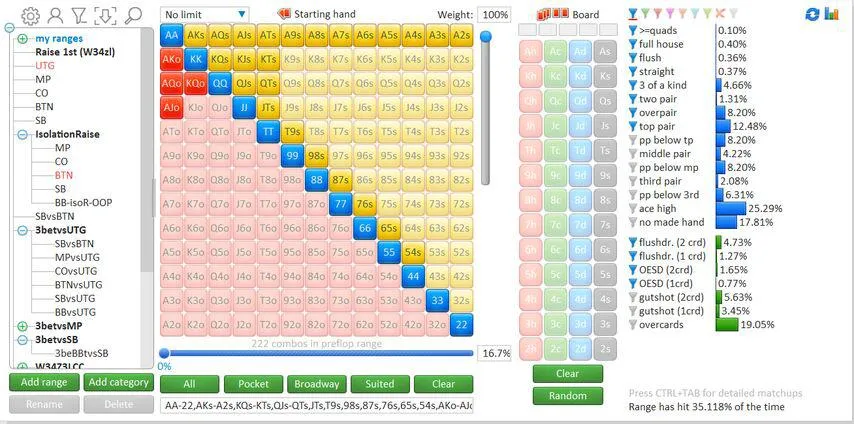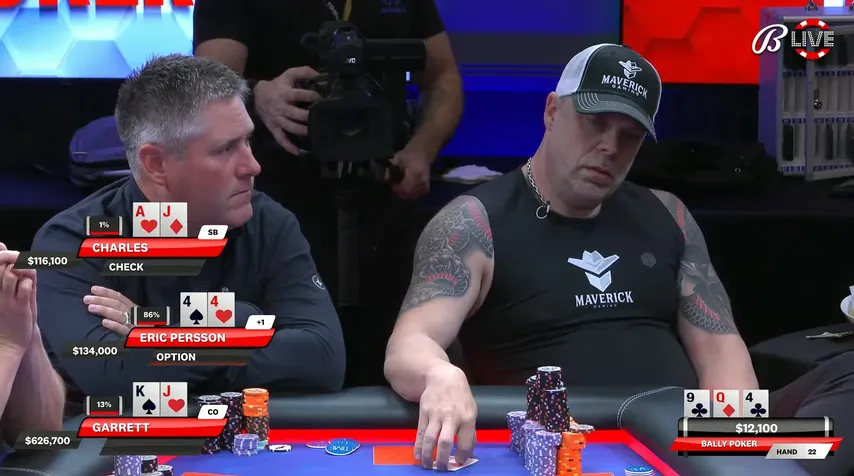Poker hands are usually between two players, especially on later streets. All basic training in the game is built on the assumption that we are facing only one opponent in a hand. However, at low limits, opponents really like to see flops and really don’t like to throw away cards (even when they should).
Thanks to calling stations and loose players you will regularly find yourself in situations where you have to play against several opponents. This is called a multi pot in poker, or more commonly, a multi-way pot.

What is a Multi Pot in Poker?
A multi pot or multi-way pot is a situation where more than two players invest money in a pot and reach the flop.

Many sites have a poker glossary where they explain the meaning of unclear terms.
Some people call a “multi pot” a hand where more than two opponents declared all-in preflop, but this is incorrect. If say, three players went all-in preflop, it’s more common to declare a “three-way all-in.”
The main difficulty when playing against several opponents is that the value of starting hands changes – for the worse. A pair of aces against a single player is a very strong combination, meaning you can, and should, build up your bank. But against four opponents, the situation changes radically and you should act extremely carefully – even to the point of quickly folding to aggressive actions from any of the players.
Some training videos and books categorize starting hands into classes, such as:
1) Hands that are good for pots against one player.
2) Hands that are good for multi-way pots.
A player can find himself in a multi pot in three roles:
- He was the preflop aggressor and got called by several opponents;
- He was raised by another player and called along with other opponents;
- There was an open raise and a call in front of him, and he made a squeeze.
The set of suitable hands for multipots in these situations will be different. Depending on the stakes you play online, the range of suitable hands might increase or decrease in size.
Best Hands for Multi-Way Pots
When building smart ranges, you need to combine strong premium hands and hands with a draw or set potential.
- The first category includes premium pocket pairs (TT to AA) and strong broadway hands (AJ+, KQ).
- The second includes suited connectors, aces and pocket pairs. Classic connectors are 54s-109s, and suited aces are any ace with a card of the same suit. For example, A2s and A9s are “suited aces.”

What is the easiest way to play pocket pairs in multi pots?
With hands 22 through to 99, the player's task comes down to simply hitting or missing their set. If it is not possible to complete a set, then the player with pocket pairs often does not invest money in the pot. It is important to understand that opponents can easily read this approach and skilled players will soon begin to exploit you. As time goes on and the limits increase, the strategy of catching sets will have to be abandoned in favor of a more balanced game post-flop.

With suited aces, the strategy is also simple: either we hit a strong draw or we give up. Why should you play A2s-A9s, but avoid playing any Q7s? The point is dominance – with suited aces you will take pots with many hands below the flush, but with Q7s, you will often lose a big pot to A2s-A9s. Another advantage of suited aces is that if we hit an ace, we will often win the pot against passive opponents.
But you shouldn’t play unsuited connectors and aces. They only have the potential for one draw and it will come very rarely. Anyway, opponents usually won’t pay bets on boards with four suited cards.
Strategies for Playing Against Multiple Opponents
When playing in a multi-way pot, you should always remember four rules:
- We defend bets from other opponents tighter than in a Heads-Up pot. The rule is based on a simple idea – against several opponents, betting with a weak hand or garbage will rarely be done. Therefore, the requirements for combinations for protection should be higher. You need to be even more careful if you are not the last to make a decision in a betting round. The players sitting behind you can turn the tide of the hand.
- The hand requirements for value bets against multiple opponents are higher. If we were preflop aggressors, we should take into account our opponents' calling ranges. Sometimes there will be no value bet with A9s or K10s, even if you hit top pair. This is because opponents could easily call with AJs or KJs.
- Don't make big bets in multi pots just because you're used to it. In some situations, reducing the sizing will not affect the number of folds from your opponents. Therefore, there is no point in spending too much. Another reason is that the pot size in a multipot is larger than in a regular pot. This means that with bets of 2/3 or 3/4 of the pot by the river, you will no longer be able to make a convincing shove. That is, often we lose the option of bluffing on the last street.
- We tighten our range for value bets, but also for bluffs. Here, too, everything is obvious – too frequent bluff bets will lead to the loss of extra money.
Learn to Play Multi Pots
Skills come only with a skillful combination of theory and practice. Therefore we recommend:
- Try using a poker calculator. For example, like Flopzilla, a program that teaches you to think in ranges. In the updated Flopzilla Pro calculator, they added analysis of multi pot situations.

- Play against real opponents. There isn’t any need to risk your money, because there are free tournaments from GipsyTeam. Not only do you learn how to play, but you can also win your first few poker dollars. To gain access to tournaments, you need to register accounts in rooms using GT links.
If you are interested in free tournaments, then the full schedule and current passwords for freerolls can be found in a special section on GipsyTeam.
If you are having issues joining a poker site, write to GT support. You can also ask questions about installing and configuring software, deposits and cashouts, and participation in promotions. Experts answer on Discord, Skype, live chat, and Telegram.
- Increased rakeback and personal bonuses
- Help with deposits and cashouts
- Access to mobile applications
- Solving problems with accounts
- Technical support
- Questions about the site and forum





















